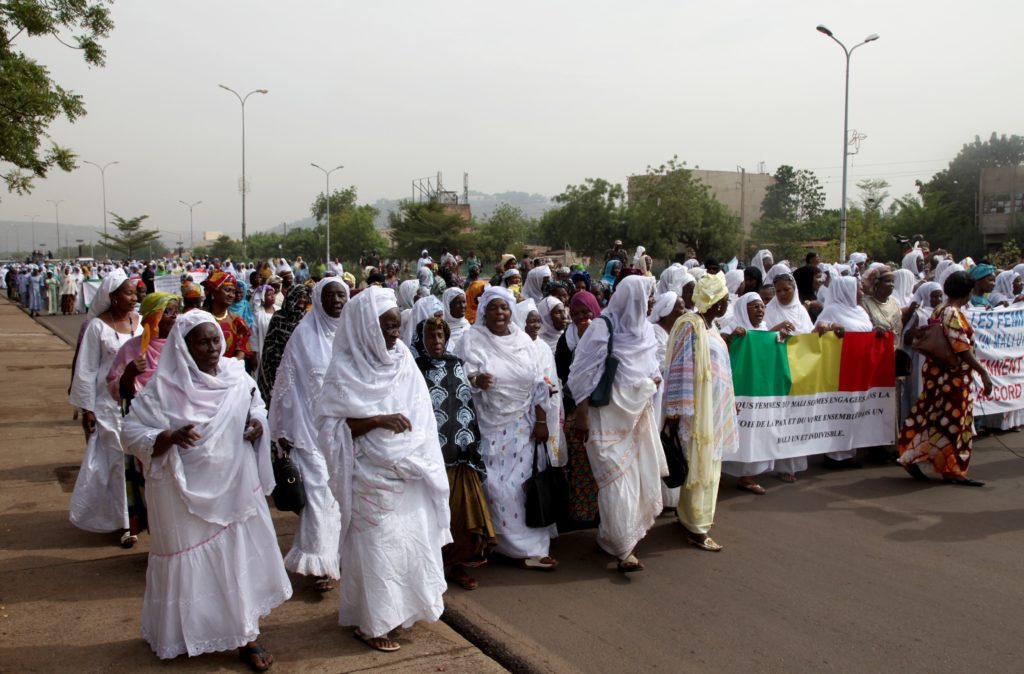Project
Gender, Peace and Security

An important goal of German foreign security and development policy is the promotion of gender equality. The aim of the Advisory Board for Civilian Crisis Prevention is to raise awareness of the connections between gender, civilian crisis prevention and peacebuilding, create discursive spaces and promote the consideration of gender aspects in political processes.
The importance of the Women, Peace and Security Agenda is anchored in the Federal Government’s “Preventing Crises, Resolving Conflicts, Building Peace” guidelines, so the consideration of gender aspects is an important intersectional issue. Relevant objectives have also been incorporated into the interministerial strategies Supporting Security Sector Reform (in German), Promoting the Rule of Law (in German) and Supporting Initiatives for Dealing with the Past and Reconciliation (Transitional Justice) (in German). A broad range of synergies with the National Action Plan (NAP) (in German) on the implementation of the United Nations Security Council’s Resolution 1325 on Women, Peace and Security have emerged. Here, the Federal Government has set out a broad range of measures to increase the participation of women and take into account their interests and protection. Gender equality, however, affects not only women; it affects all genders. The aim is therefore to systematically incorporate gender perspectives into foreign policy.
In 2020 the Advisory Board invited participants to contribute to an online exchange of ideas on the theme of security sector reform and gender. Here, experts and representatives of Federal ministries and implementing organisations discussed the fundamental connections between security sector reform and gender, the opportunities and challenges of gender-responsive security sector reform in Iraq, and the transformation of violence-centred masculinities in Liberia. You can find some of the discussion points in this PRIF Spotlight (in German), compiled by Advisory Board members Dr Melanie Coni-Zimmer and Dr Sonja Schiffers.
Likewise, in 2020 the Advisory Board, together with the Global Public Policy Institute and in consultation with the civil society coalition Bündnis 1325, initiated a Debate on the PeaceLab Blog on the subject of the new NAP 1325. Dr Sonja Schiffers and Dr Melanie Coni-Zimmer wrote the opening and concluding contribution for this. In the context of the debate, 40 authors discussed a variety of ways in which Agenda 1325 could be developed in Germany, and these have been incorporated into the new NAP.
In 2019 the Advisory Board advocated that gender be taken into account as comprehensively as possible in the interministerial strategies cited. Once the strategies were adopted, the Advisory Board ran a workshop on their gender-responsive implementation at the annual Advisory Board conference. In addition, Sonja Schiffers, Melanie Coni-Zimmer and Christina Bermann-Harms published a contribution on this on the PeaceLab Blog.